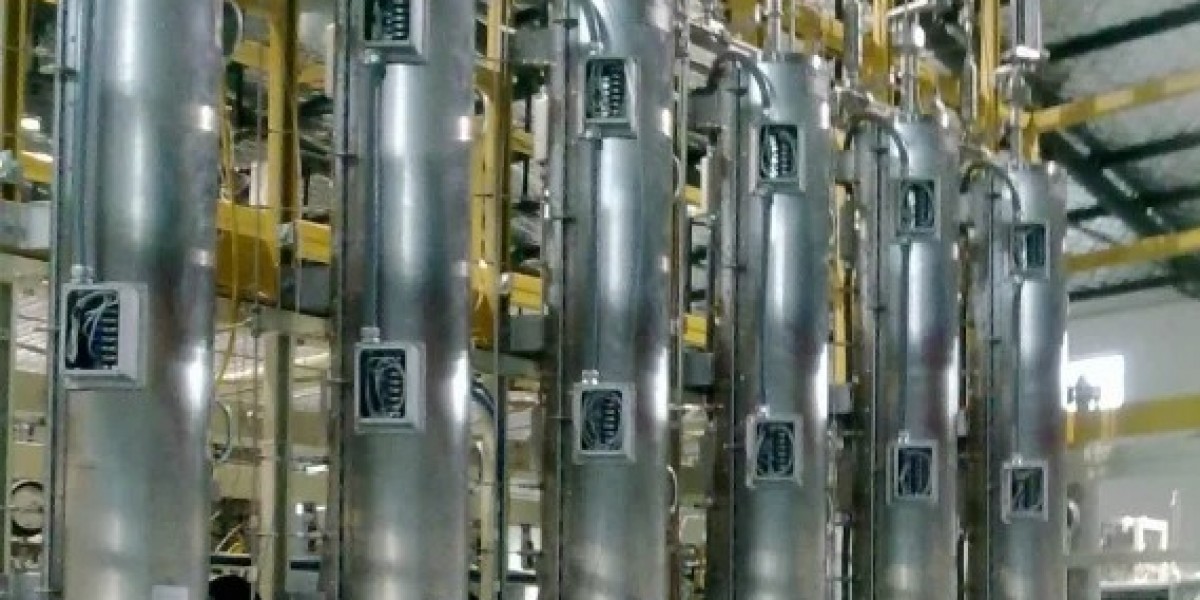Fixed-bed units are widely used in chemical processing industries due to their numerous advantages. These units consist of a solid catalyst or adsorbent packed in a fixed bed, through which the reactants or feedstock flow. This article explores the various advantages of fixed-bed units in chemical processing, highlighting their efficiency, versatility, and cost-effectiveness.
Enhanced Reactor Efficiency
Fixed-bed unitsoffer enhanced reactor efficiency due to their high surface area-to-volume ratio. The solid catalyst or adsorbent in the fixed bed provides a large active surface area for the reactants to interact, leading to increased reaction rates. This results in higher conversion rates and improved product yields. Additionally, the fixed-bed configuration allows for better heat transfer, ensuring optimal temperature control during the reaction.
Improved Mass Transfer
Fixed-bed units facilitate improved mass transfer between the reactants and the catalyst or adsorbent. The fixed bed provides a continuous flow of reactants through the catalyst, allowing for efficient diffusion and adsorption. This promotes better contact between the reactants and the catalyst, leading to faster reaction kinetics and improved selectivity. The enhanced mass transfer in fixed-bed units also reduces the risk of side reactions and minimizes the formation of unwanted byproducts.

Versatility in Catalyst Selection
Fixed-bed units offer versatility in catalyst selection, allowing for the use of a wide range of catalysts tailored to specific reactions. Different catalysts can be packed in separate beds within the same unit, enabling multiple reactions to occur simultaneously. This flexibility in catalyst selection allows for the optimization of reaction conditions and the production of a diverse range of products. It also facilitates catalyst regeneration and replacement, reducing downtime and increasing operational efficiency.
Scalability and Continuous Operation
Fixed-bed units are highly scalable and can be easily adapted to different production capacities. The fixed-bed configuration allows for the stacking of multiple beds, increasing the overall reactor volume as required. This scalability makes fixed-bed units suitable for both small-scale laboratory applications and large-scale industrial processes. Furthermore, fixed-bed units enable continuous operation, ensuring a steady flow of products and minimizing batch-to-batch variations. This continuous operation enhances process control and reduces production costs.

Long Catalyst Lifespan
Fixed-bed units have a longer catalyst lifespan compared to other reactor configurations. The fixed bed provides mechanical stability to the catalyst, preventing its attrition or loss during operation. This results in reduced catalyst replacement frequency and lower maintenance costs. Additionally, the fixed-bed configuration allows for effective catalyst regeneration, further extending its lifespan. The longer catalyst lifespan in fixed-bed units contributes to overall cost savings and process sustainability.
Cost-Effectiveness
Fixed-bed units offer cost-effective solutions for chemical processing. The high reactor efficiency and improved mass transfer in fixed-bed units result in higher product yields and reduced waste generation. This leads to cost savings in raw materials and disposal. The versatility in catalyst selection and scalability of fixed-bed units also contribute to cost-effectiveness by allowing for process optimization and efficient resource utilization. Furthermore, the long catalyst lifespan and continuous operation minimize downtime and increase overall productivity, further enhancing cost-effectiveness.

Conclusion
Fixed-bed units provide numerous advantages in chemical processing, including enhanced reactor efficiency, improved mass transfer, versatility in catalyst selection, scalability, long catalyst lifespan, and cost-effectiveness. These advantages make fixed-bed units a preferred choice in various industries, ranging from petrochemicals to pharmaceuticals. By utilizing fixed-bed units, companies can optimize their processes, increase productivity, and reduce costs, ultimately leading to sustainable and efficient chemical processing operations.
The Role of Fixed-Bed Units in Catalytic Conversion Processes







